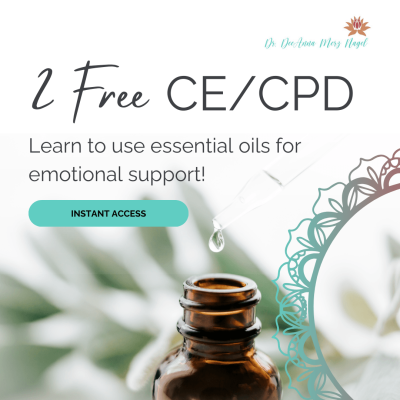
The debate is hot about whether or not a health/wellness coach or a psychotherapist (who may or may not also hold a coach certification) can give nutritional advice. The short answer is, “Not really.”
Coaching
The longer answer is this- as coaches we often put on our “educator” hat to give information to a client so that those powerful questions we ask clients can result in powerful answers. Sometimes our job is to provide information so the client can make informed choices about goal planning.
With health coaching, we do the same. Generally, we cannot give education or information that is diagnostic in nature, or that could be considered medical advice. If a client says for example, “I have multiple sclerosis and I want to learn to eat healthy,” as a coach you can make a referral to a medical professional or dietician and you can give basic information about a wellness lifestyle. You job as a coach is to support her to maintain her diet that is prescribed by a medical professional. You can inform the client that there are specific diets for her condition such as the anti-inflammatory diet but that she would want to discuss this with her doctor. I invite clients to google the topic to find information from reputable sites so that they can become empowered and be their own best advocate.
Psychotherapy
As a therapist, counselor or mental health professional, even if holding a coach certification, you cannot give nutritional advice that could be construed as medical advice that falls outside your scope of practice. While you may hold a license to practice counseling or psychotherapy, that license does not allow you to diagnose outside of your area of expertise. You may be in a position to suggest, based on a client’s self-report, that he/she may have food allergies or sensitivities and refer the client to their primary physician for referral. Given the outcome of that referral, you may find that your role with your client is helping your client adjust to this “new normal.” I have found in my own practice over the years, that this is not much different to having worked with people who have acquired a medical or mental disability requiring counseling to adjust. Often with newly diagnosed medical or mental disabilities adjustments in lifestyle are mandated and that is the same for someone dealing with nutritional issues. A wellness lifestyle change can certainly bring on anxiety, uncertainty and even depression and isolation.
So, what about food allergies and food sensitivities?
As either a therapist or a health/wellness coach you may see clients whose wellness is impacted by food allergies and/or food sensitivities. There is a difference in the two. In general, a food allergy has much more severe consequences than a food sensitivity. But that is not to slight food sensitivity as a difficult issue for a person to manage. Food sensitivities can wreak very damaging effects on a person’s physical health over the long run so while a person with Celiac Disease may have an immediate reaction to gluten, even possibly requiring hospitalization, a person who is “just” gluten intolerant but continues to ingest gluten frequently over a period of years may have a very unhealthy digestive and immune system.
My experience with food angst
I know from personal experience about both food allergies and food sensitivities. I am allergic to shellfish and fin fish. Allergic. Epipen allergic. The consequences of eating seafood can be dire for me. And the angst that has ensued over the years with myself, family and friends has at times, been overwhelming. As examples, particularly when dining out, or when having to inform my neighbor that I can’t be in her house for the party while shellfish is being prepared.
I am also gluten intolerant. If I eat gluten I have immediate gastro-intestinal issues and other symptoms. After years of having gluten in my diet, it took my body a very long time to feel healthy again. Eating a diet with wheat bread and pasta was quite debilitating for me. I was grateful when I figured out what was causing the symptoms and it was my own psychotherapist at the time who suggested I look into it.
Since that time I have become sensitive to mangoes, nightshades (tomatoes, potatoes, eggplants, peppers), cow dairy and soy. I am also sensitive to sulfites in wine and monosodium glutamate. The latter will give me a migraine that can last 2 days even though much of the scientific community debunks the idea that MSG can cause sensitivity.
Food sensitivity is seldom an isolated experience
If you know me or follow my blog you may have read that I have Primary Lymphedema (from birth) and I acquired Sarcoidosis 20 years ago. Sarcoid is an auto-immune disorder. In the case of lymphedema, my lymphatic system simply does not flow properly and causes swelling on my left side. Certain foods exacerbate both conditions.
But there’s more. While someone may have a “stand alone” food allergy such as peanuts or eggs (2 of the most common), people with food sensitivities often have chemical sensitivities as well, both resulting from auto-immune issues.
For me, narrowing down what was causing my digestive upset and at the same time, trying to figure out what was causing my headaches was an exhaustive, timely and anxiety-producing experience. With food sensitivities both therapists and coaches are likely working with clients who are facing a multitude of health issues.
How can I best serve my client?
You can best serve your client by becoming informed about the issues related to food and diet. You can put on your “consultant” hat briefly to point your client in the direction of educative resources and self-advocacy and refer your client to his/her doctor. Once the issues are known, the coach can offer guidance to the client in reaching their wellness goals. If anxiety or depression is apparent or self-reported by the client, a referral to a mental health practitioner is in order. As a therapist, you can support the client in managing the emotional components of coping with food issues, whatever those issues may be.
Bottom line: Be sure you know your own scope of practice and that of others such as nutritionists and dieticians. This website lists the updates on scope of practice for nutritionists, dieticians and health coaches in all 50 states: Center for Nutrition Advocacy
I am a counselor and coach educator and I teach about scope of practice and wellness coaching in my Intuitive Wellness Coach course that leads to certification. I also teach a 10-hour course on nutrition lifestyles and weight management through The Institute for Life Coach Training.
What you will learn on your way to becoming an Intuitive Wellness Coach
clear





